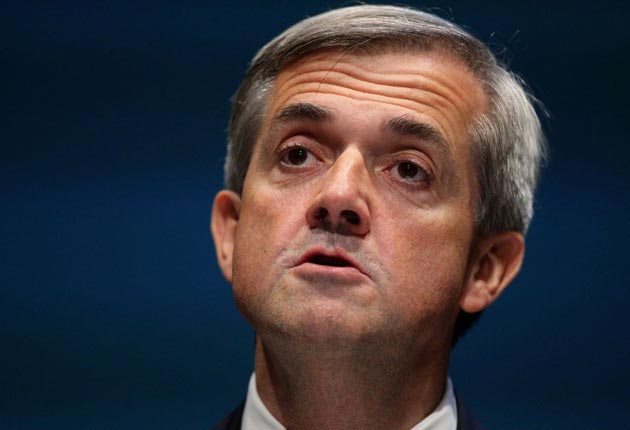Climate deal on a knife edge at the 'zombie' conference

Ministers and officials from nearly 200 countries appeared to be inching towards a new international deal on countering global warming in the UN climate talks in Cancun late last night, although the eventually outcome was still hanging in the balance.
Britain’s Energy and Climate Change Secretary, Chris Huhne, closely involved with negotiating the toughest issue in the talks – whether or not the current climate treaty, the Kyoto Protocol, should be renewed it is present form – said he was “cautiously optimistic.”
New language had been found, he said, which might make possible a way forward between the entrenched positions of Japan and Russia on the one side – refusing to sign up to a renewed Kyoto, which commits the rich counties to make tough cuts in greenhouse gas emissions, but commits the poor developing countries to nothing – and the developing nations led by Bolivia and Venezuela on the other, who are insisting on a Kyoto 2 as part of any deal.
At stake in the outcome, which will be clear by this morning, is not just a package of measures to fight global warming and its effects, ranging from a new forest treaty to a global Green Fund, but the very credibility of the UN climate change negotiating process, which suffered a body blow from the collapse of the previous climate conference in Copenhagen last December.
It would be unlikely to recover from a second failure.
Mr Huhne said last night : “It’s beginning to stack up and I’m cautiously optimistic. We’re in a much better position than we were in Copenhagen at this stage of the game. But there is potentially nothing to stop one or more countries having a hissy fit and throwing their toys out of the pram, and that may still happen.”
Potential difficulties last night involved Venezuela, still taking a hard line in its insistence on renewing Kyoto, and Bolivia, which was refusing to accept any language referring to markets in the forest treaty. As the forest treaty is in essence about creating a vast new market in carbon credits by keeping forests unlogged, this was something of a problem.
However there was some optimism after the Japanese, who have been outspoken in their refusal to countenance a second period of Kyoto, softened the language they were using.
The less hard-line Japanese stance followed a personal phone call from David Cameron to the Japanese Prime Minister, Naoto Kan. A Downing Street spokesman said: “Mr Cameron stressed the importance to the Japanese premier of an ambitious outcome to the Cancun talks.”
Mr Cameron’s intervention was unusual, in that the world’s senior national leaders have avoided Cancun like the plague, presumably because they have not wanted to risk being associated with another Copenhagen-like failure. (Mr Cameron was invited to attend by the Mexican Government but declined.)
But although Cancun has seen no-one of the word rank of President Obama, or Nicholas Sarkozy of France, or Angela Merkel of Germany, that is not to say that Heads of State and Heads of Government have not been on view. About 30 national leaders have attended the conference at one time or other, especially members of the Association of Small Island States, which are particularly threatened by the sea level rise associated with global warming, and other counties at risk from climate change.
They have included such luminaries as His Excellency Mr Tuilaepa Luopesoliai Sailele Maliegaoi, Prime Minister of Samoa, Mr Enele Sosene Sopoaga, Deputy Prime Minister of Tuvalu, and Mr John Moffat Fugui, Minister of Environment, Climate Change, Disaster Management and Meteorology of The Solomon Islands.
The most senior national leaders present have included Felipe Calderon of Mexico (naturally), the firebrand Evo Morales of Bolivia, and Jens Stoltenberg of Norway, who together with the leader of Ethipioa, Meles Zenawi, chaired a UN report on climate finance which they presented to the conference,
The absence of other senior leaders has one major disadvantage – if the conference does fail to come to an agreement, there will be no possibility of patching up ad-hoc deal as was done between heads of state at Copenhagen, to produce the informal Copenhagen Accord. Instead, failure will simply be failure, this morning, plain for all to see.
Join our commenting forum
Join thought-provoking conversations, follow other Independent readers and see their replies
Comments
Bookmark popover
Removed from bookmarks